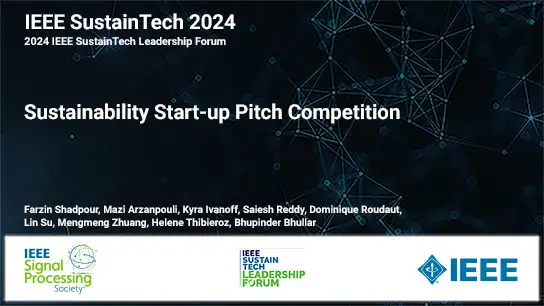A Sparse Coding Approach To Automatic Diet Monitoring With Continuous Glucose Monitors
Anurag Das, Seyedhooman Sajjadi, Bobak Mortazavi, Theodora Chaspari, Projna Paromita, Laura Ruebush, Nicolaas Deutz, Ricardo Gutierrez-Osuna
-
Members: FreeSPS
IEEE Members: $11.00
Non-members: $15.00Length: 00:13:30
08 Jun 2021
Measuring dietary intake is a major challenge in the management of chronic diseases. Current methods rely on self-report measures, which are cumbersome to obtain and often unreliable. This article presents an approach to estimate dietary intake automatically by analyzing the post-prandial glucose response (PPGR) of a meal, as measured with continuous glucose monitors. In particular, we propose a sparse-coding technique that can be used to estimate the amounts of macronutrients (carbohydrates, protein, fat) in a meal from the meal’s PPGR. We use Lasso regularization to represent the PPGR of a new meal as a sparse combination of PPGRs in a dictionary, then combine the sparse weights with the macronutrient amounts in the dictionary’s meals to estimate the macronutrients in the new meal. We evaluate the approach on a dataset containing nine standardized meals and their corresponding PPGRs, consumed by fifteen participants. The proposed technique consistently outperforms two baseline systems based on ridge regression and nearest-neighbors, in terms of correlation and normalized root mean square error of the predictions.
Chairs:
Chandra Sekhar Seelamantula



